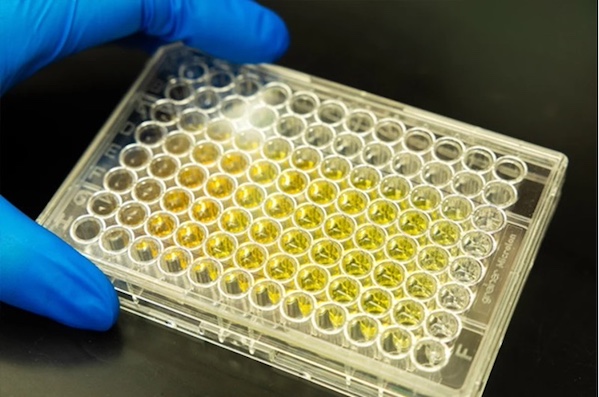Nanotech to Further Enhance Sensitivity and Accuracy of ELISA Testing for Cancer Screening
July 3, 2024
Source: drugdu
 466
466
 The early detection of serious diseases such as cancer or dementia is crucial for effective treatment and improving survival rates. One of the leading methods used for this purpose is the enzyme-linked immunosorbent assay (ELISA), a popular technology in disease screenings. Building upon previous advancements in nanoparticle research, scientists are now working on further enhancing the sensitivity and accuracy of ELISA tests for detecting cancers and other diseases.
The early detection of serious diseases such as cancer or dementia is crucial for effective treatment and improving survival rates. One of the leading methods used for this purpose is the enzyme-linked immunosorbent assay (ELISA), a popular technology in disease screenings. Building upon previous advancements in nanoparticle research, scientists are now working on further enhancing the sensitivity and accuracy of ELISA tests for detecting cancers and other diseases.
The promising nanoparticle research being conducted by Associate Professor Xiaohu Xia at the University of Central Florida’s (UCF, Orlando, FL, USA) Department of Chemistry has the potential to increase the accuracy of disease detection by over 300 times compared to current market standards. Supported by a USD 1.3 million grant from the National Institutes of Health, Xia's four-year project aims to boost the diagnostic performance of ELISA tests by utilizing custom-designed nickel-platinum nanoparticles that attach to specific disease markers like proteins and hormones in fluid samples. Although nanoparticles have been previously explored in ELISA tests, significant enhancements in diagnostic sensitivity have not been achieved for many years. Xia's work seeks to end this stagnation by replacing traditional peroxidase enzymes from horseradish with nanoparticle-based artificial enzyme "mimics," which offer greater stability and activity, potentially leading to more dependable and accurate ELISA test results.
In his ongoing study, Xia plans to optimize and demonstrate the effectiveness of these nanoparticles with clinical samples, marking the first such attempt in his research. He is refining the nanoparticles' structure to create the most effective artificial enzymes for diagnostic use. These nanoparticles will act as advanced artificial "mimics" of conventional enzymes, reacting in such a way that they produce a color change with bioreceptors like antibodies when disease markers are detected. The intensity of the color change indicates the level of the biomarker present, with stronger colors indicating higher concentrations. The high sensitivity of the tests is critical to avoid false negatives, which could hamper timely treatment. Xia is optimistic that his research will not only provide faster results and clearer sample coloration but also simplify the testing processes and equipment required. By extending the insights from his foundational research in 2021, he aims to impact the broader field of in vitro diagnostics, proposing a new class of highly efficient artificial enzymes suitable for a wide range of diagnostic applications beyond just ELISA.
“Detection sensitivity is critical for diagnostics for significant diseases,” said Xia. “For the very early stages, the concentration of biomarkers may be very low and not detected by conventional ELISA. With our new technology, were aiming to substantially improve the sensitivity so we can detect even low concentrations of biomarkers in patient samples.”
“The ultimate goal we want to achieve is early detection of significant diseases like cancer and in the future, we also want to detect some other very challenging diseases like maybe even Alzheimer’s Disease,” Xia added.
Source:
https://www.labmedica.com/molecular-diagnostics/articles/294801692/nanotech-to-further-enhance-sensitivity-and-accuracy-of-elisa-testing-for-cancer-screening.html
Read more on
- China Sino Biopharmaceutical Signs Exclusive Licensing Agreement with Sanofi for Rofalcitinib March 4, 2026
- Gan & Lee Pharmaceuticals’ new PROTAC drug GLR2037 tablets have been approved for clinical trials to enter the field of prostate cancer treatment March 3, 2026
- AideaPharmaceuticals plans to raise no more than 1.277 billion yuan through a private placement to focus on the global clinical development of innovative HIV drugs March 3, 2026
- Giant Exits! Its Star Business Acquired March 3, 2026
- Focusing on cardiovascular and cerebrovascular diseases! OpenMediLead Medical Intelligence Dual Engines Launch Internal Testing, Connecting Drug Development and Clinical Diagnosis in a Closed Loop March 3, 2026
your submission has already been received.
OK
Subscribe
Please enter a valid Email address!
Submit
The most relevant industry news & insight will be sent to you every two weeks.



